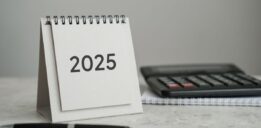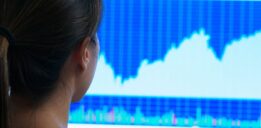Recession Possible if Fed Follows its Plan for Interest Rates
Bill Gross predicts a recession.
One of the world’s most famous bond market managers, Gross expects an economic recession in the United States if the Federal Reserve proceeds with its plan to lift interest rates again in 2017. Naturally, given that America’s economy is still the world’s largest, a recession there would inevitably spread worldwide.
Gross, who has earned the nicknames “Bond King” and “Bond Guru,” has no doubt. Thus, you might as well consider an interest rate hike now as a ringing bell, signaling the start of the upcoming recession. (Source: “Recession possible if the Federal Reserve follows its plan, says Bill Gross,” CNBC, September 20, 2017.)
Also Read: The Upcoming Economic Recession in 2017 Has Already Begun
Why would such an apparently simple decision serve as one of the top causes of an economic recession? Some economists might even interpret an interest rate hike as a sign that the economy is healthy. Perhaps that’s the intent of Fed Chair Janet Yellen. But, warns Gross, pushing the nominal interest rate higher now would fail to produce that effect. If that’s what Yellen is thinking, she’s on the wrong track.
Collapse of Financial System Is Inevitable
Gross, a portfolio manager at Janus Henderson Investors, warns that, should the Fed follow through on its designs, a collapse of the financial system is inevitable. The Fed’s adopted plan foresees, over the next two years, increasing interest rates to 2.8, or even three percent. Ten years ago, such rates would have been considered bullish. But, after almost nine years of near-zero interest rates, Gross says a 170-basis-point increase would overburden the financial markets and the economy as a whole. Thus, Gross says a recession is very likely. (Source: Ibid.)
During its September 20 meeting, the Fed maintained its current level of interest rates (in the range of 1.0%–1.25%). Investors hinted at how they might react to a hike to those rates. The markets were hesitating. Stocks were not moving for the first part of the day, as investors were tense. The bullish move, pushing the Dow Jones to another record, came only after Yellen offered the reassuring news that interest rates would be left untouched—for now.
But, sooner or later, a correction will occur. We’ve seen that the mere, and slight, expectation of a rate hike can turn the current super-bullish species of investor into a hibernating bear. Nevertheless, the Fed maintained its expectations for one more rate hike this year, three in 2018, and two more in the following year!.
The Fed will begin by reducing its assets, which have reached $4.5 trillion. That sell-off starts in October. Expect the first market tremors to start that month as well, when investors realize that the Fed authorities will proceed as planned. Gross does not favour the Fed’s plans. He says the rate hikes will have dire consequences, increasing the cost of short-term debt for both businesses and individuals.
Now, consider that household debt in the U.S. has been estimated at $12.7 trillion! (Source: “Household debt just surpassed the record level reached during the 2008 financial crisis,” CNBC, May 17, 2017.)
In short, overall debt projections have been revised for the worse.
Then There’s This Other Risk to Worry About…
There is an additional risk to ponder. The Federal Reserve has decided to take the risk of raising rates now because it’s politically convenient. The Donald Trump administration has come under fire. Even some of his fellow Republicans may no longer support him because of his recent agreements with the Democratic Senate and House minority leaders over aspects of immigration policy and—especially—the debt ceiling.
In other words, the Fed can raise rates, crash the economy, and put the blame for the inevitable economic recession squarely on Trump’s shoulders. Of course, we all know the problem has nothing to do with the president. His pro-business tax plan remains just a promise, and it’s unlikely to go through. Still, that did not stop greed. Some of the same people who like to accuse Trump of all manner of sins and mistakes have been the first to benefit from Trump’s proposals, regardless of whether they pass or fail.
No, the stock market exuberance and the dangerous peak where it is leading started a while back. Investors have become accustomed to the Dow Jones constantly going up. The impression all around us is that the economy is in severe decline. The Fed has sent quiet warnings only. Thus, when billionaires like Bill Gross issue louder warnings of a stock market crash, nobody pays attention. They think Gross has something up his sleeve; they think he wants a crash.
Those who were analysts before the 2008 subprime crash find this mentality utterly familiar. The media kept pushing the market euphoria right up to the very day of the implosion. Voices offering a different, more reasoned, approach to the markets were silenced. Or they were thought to have a special interest in promoting a crash. Then, as now, the economic facts simply do not support the exuberance of current investment attitudes.
Remember a lot of people saying that the economy was unstoppable? They thundered that another financial “accident” like what happened in 1929 was impossible. Now they’re saying that another 2008-style crash is unlikely. I, on the other hand, propose that both scenarios are highly likely, and they may even occur in tandem.







